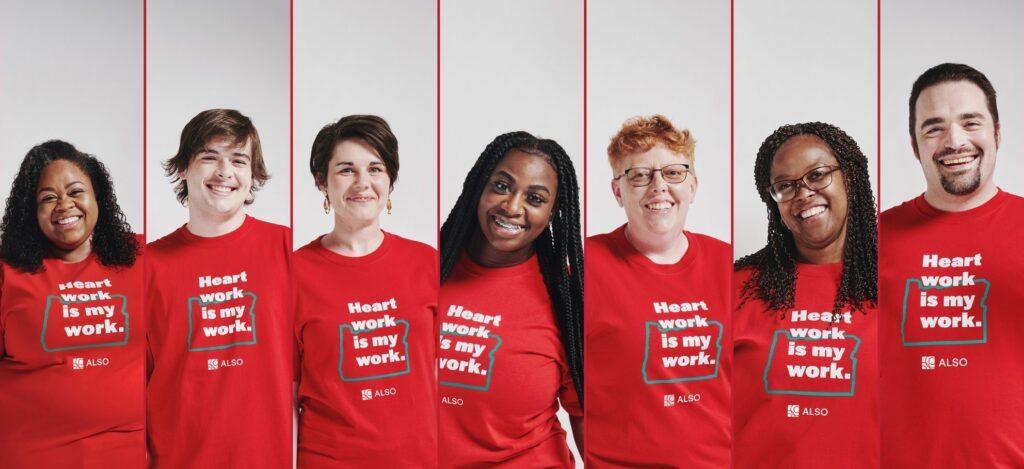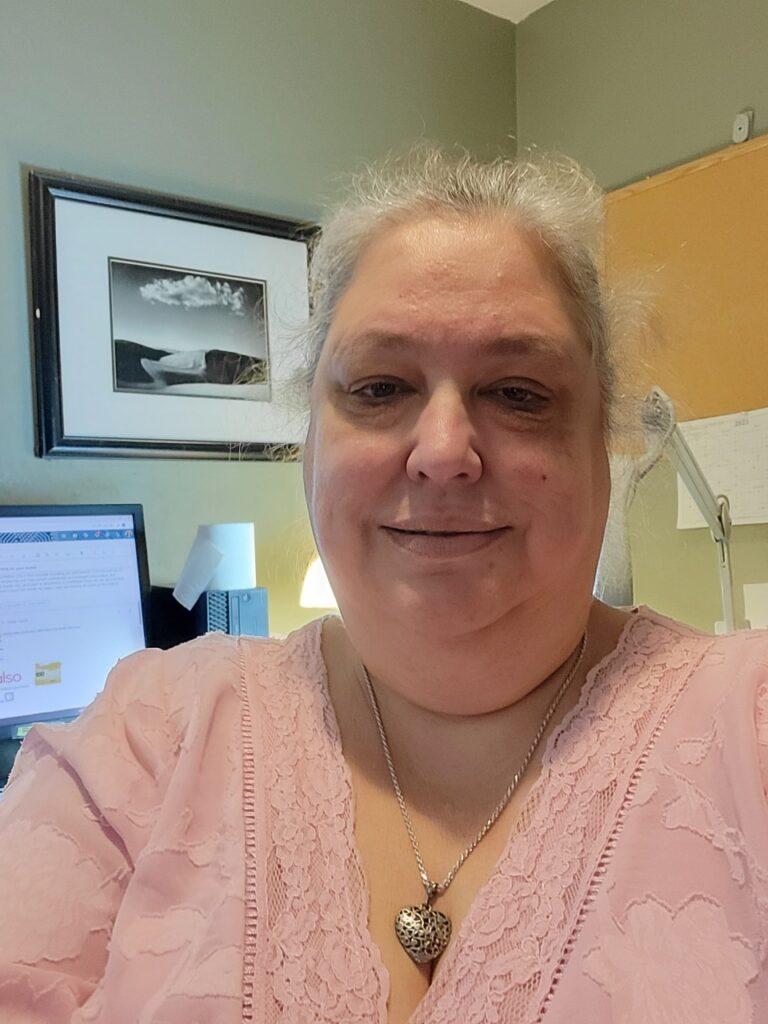Support our diverse communities by buying tickets from the ALSO HEARTS raffle fundraiser! Tickets are available until July 31st, 2025.
Support our diverse communities by buying tickets from the ALSO HEARTS raffle fundraiser! Tickets are available until July 31st, 2025.


Long-time disability advocate Mary Ricker has worked in residential services for ALSO for over twenty-one years, first as a direct support professional, and now as a manager in residential services. She credits her longevity to great working conditions and the supportive management that creates those conditions.
She’s not alone in her reasoning. Several studies suggest that fair treatment by a supervisor is the number one factor in employee retention. Effective managers keep people on the job by ensuring good communication, making sure staff’s efforts are recognized, and building relationships based on trust. And relationships between managers and staff affect more than retention: They are the second most important factor in employee well-being, after mental health.
Since coming to ALSO, Mary has loved all her jobs working with people with disabilities, but was incredibly frustrated in her previous direct support professional job with another organization. “I hated that job,” Mary says. “A friend of mine who was working at ALSO said, ‘Come over here.’ I liked it. I liked the fact that management actually cared. I wasn’t sitting there at night trying to make decisions by myself. I had upper management help…they actually wanted to help you out.”
Today, as a residential services manager, Mary finds it just as important to have support from upper management. “I have a good boss I really like. Our group of managers meet as a group once a week, which is very supportive. I really like it because you can bounce things off other people…It’s kind of nice to get a collective opinion.”
Flexibility is also important to Mary (and many other job seekers), and she counts her flexible work schedule as one of the top perks of her job at ALSO. It’s especially helpful when day-to-day life intrudes. “Like this morning, I had an emergency and had to take my granddaughter to school, so I’ll just fill in the hours later.”
Mary takes the lessons she’s learned from her supervisors and applies them to her management style. She makes sure her staff feels appreciated, supported, and most of all, respected. “I treat people how I want to be treated. That definitely works in the workplace.” She laughs: “Otherwise you have all this chaos, and I don’t do chaos.”
Mary treats the individuals ALSO supports with the same respect and high level of care she would want, and she sees how it improves lives, as with a particular individual with multiple medical issues. “He hasn’t been in the hospital since February, and that is a miracle. We have a lot of stuff in place, like we take his temperature three times a day. We keep an eye on him in case there are any changes and test earlier, and he’s not so sick.” It’s not just a win for the individual, but for Mary and the other staff as well. “It’s just nice to see that the things you’re doing are working. It makes me happy knowing that I can help somebody else, and that they’re getting the help they need.”
It also makes Mary happy that she’s been able to support some individuals for years. “A lot of them (individuals supported) have a lot of people that come in and out of their lives. It’s constant change, and it can be hard for them to adapt, especially if people say, “I’ll come back and see you,” and then they (the individuals) wait for people who never show up.” Long-term staff can also help to provide better care, she says, because they understand the individual’s needs, both physical and emotional. “It’s always a benefit to have people that know you.”
And for Mary, that connection can run deep. When asked if she had a story that illustrated why she stays at ALSO, she talked about an individual she’d supported for years. The woman was in hospice, and had been especially peaceful, “just smiling away,” Mary remembers, “The next morning, we were all with her, and the sunlight came through the window and she died at that moment, like she was going with the sunrise. It was a beautiful thing and I felt like she was going to be okay…You take care of these guys and you become their family. You have to deal with the same emotions you would deal with with your own family.”
Mary’s quick to say that she may have a big heart, but the reason ALSO is such a great organization for individuals with I/DD and for staff is because everyone works as a team. She has special respect for her staff working DSP jobs. “They take care of everybody, and go on outings, and all that kind of stuff. They’re the lifeblood of the group home. It’s not just one person, it’s everybody, and we all work together really well. That makes me happy.”
If you’re a disability advocate looking for a job where teamwork is central, you have support from management, and you can make a difference in someone’s life, check out ALSO’s jobs working with people with disabilities.
And if you’re looking for disability support services for yourself or a family member, discover all ALSO has to offer, from residential services to supported employment. Register for a free tour today!

Sign up for our newsletter to get our latest news, content, and job opportunities.
Help us ensure that everyone has the same opportunities in their home, workplace and community. Let’s make dreams!
